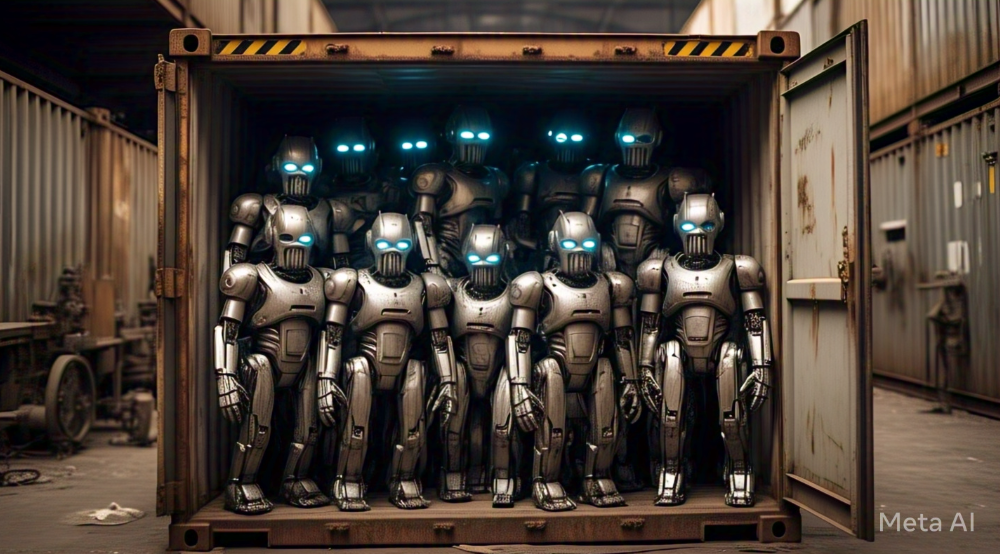 AI
AI
 AI
AI
 AI
AI
Software containerization company Docker Inc. is looking to grow its reputation as an emerging artificial intelligence development hub with the launch of two new offerings based on the emerging Model Context Protocol standard created by its partner Anthropic PBC.
Today, it’s announcing the imminent launch of the Docker MCP Catalog and Docker MCP Toolkit, which bring more of the AI workflow into the existing Docker developer experience and simplify AI software delivery.
Docker, best known for its software container tools, has fully embraced Anthropic’s MCP, which is an open-source protocol that provides standardized interfaces for integrating large language models with external data sources and other development tools. The protocol enables AI-powered applications a safe way to retrieve data from external sources, perform operations with third-party services, and interact with local file systems, dramatically increasing the capabilities of their underlying LLMs.
Docker argues that the simplest way to use Anthropic’s MCP to improve LLMs is to containerize it. To do that, it offers tools such as Docker Desktop for building, testing and running MCP servers, as well as Docker Hub to distribute their container images, and Docker Scout to ensure they’re secure. By packaging MCP servers as containers, developers can eliminate the hassles of installing dependencies and configuring their runtime environments.
With today’s announcements, Docker is looking to take things further. The Docker MCP Catalog, integrated within Docker Hub, is a centralized way for developers to discover, run and manage MCP servers, while the Docker MCP Toolkit offers “enterprise-ready tooling” for putting AI applications to work. At launch, there are more than 100 MCP servers available within Docker MCP Catalog.
President and Chief Operating Officer Mark Cavage said Docker is trying to make the AI developer experience much more familiar, so that every developer will feel at ease while building AI applications. “Building functional AI applications shouldn’t feel radically different from building any other app,” he argued.
He explained that AI development tools are beginning to behave like full-fledged software systems, reintroducing the old challenges of packaging, versioning and authentication that were previously overcome using containerized apps. “The Docker MCP Catalog brings that all together in one place, a trusted, developer-friendly experience within Docker Hub, where tools are verified, secure, and easy to run,” he added.
The MCP Catalog and Toolkit are just the latest new developers as Docker races to build out an AI development ecosystem. Earlier this month, it launched a new service called Docker Model Runner for running models in local environments with greater security and lower latency. The company also announced Docker AI Agent, a generative assistant for AI developers, earlier this year.
It has every intention of keeping up this momentum too, promising more functionality to come in the Docker MCP Catalog. In a future release, it will add the ability for teams to publish and manage their own MCP servers with full enterprise controls, including Registry Access Management and Image Access Management.
Analyst Paul Nashawaty of theCUBE Research said the launch of the MCP Catalog represents a meaningful step forward in secure software delivery, addressing growing enterprise demands for AI supply chain security.
“At the same time, its AI tooling, including Docker Model Runner and Docker AI Agent, simplify how developers build and run models locally,” Nashawaty added. “This is critical in a market where global AI software spend is projected to exceed $300 billion by 2026.”
Support our mission to keep content open and free by engaging with theCUBE community. Join theCUBE’s Alumni Trust Network, where technology leaders connect, share intelligence and create opportunities.
Founded by tech visionaries John Furrier and Dave Vellante, SiliconANGLE Media has built a dynamic ecosystem of industry-leading digital media brands that reach 15+ million elite tech professionals. Our new proprietary theCUBE AI Video Cloud is breaking ground in audience interaction, leveraging theCUBEai.com neural network to help technology companies make data-driven decisions and stay at the forefront of industry conversations.